Afro Hair Transplant from £2500
First of all Afro Hair transplants are now very popular. We transplant hair from the donor site (back and sides) to the recipient site. Furthermore we conduct both FUT (follicular unit transplant) and FUE (follicular unit extraction). Both Afro Caribbean men and women can undertake Afro hair surgery if suitable. If you would like to know more about Afro hair transplants then give us a call, write to us or come along for a consultation. We can answer any questions you may have and confirm your suitability.
In addition, we offer eyebrow and beard surgery. Maybe you are considering one of these procedures? Similarly, you may have visited other clinics and want a comparison. Why not arrange a free consultation. We can answer any questions you have and perhaps put your mind at rest. We hope that you will consider us when choosing a clinic to help you.
Finally, we must establish if you are suitable. We have hair and scalp specialists (trichologists) on hand to speak to you right now. Hope to hear from you soon. Thank you.
Free Consultation – Afro Hair Transplants
So, you can come along to the Holborn Clinic at a suitable time where you can see a qualified Trichologist. Furthermore this first step is to ensure you are suitable. We conduct a full scalp examination to make sure there are no underlying skin conditions that may hinder the transplant. In addition confirm the reason why the hair has shed and whether there are non surgical options. Consultation takes around 30 minutes albeit we don’t have time limits.
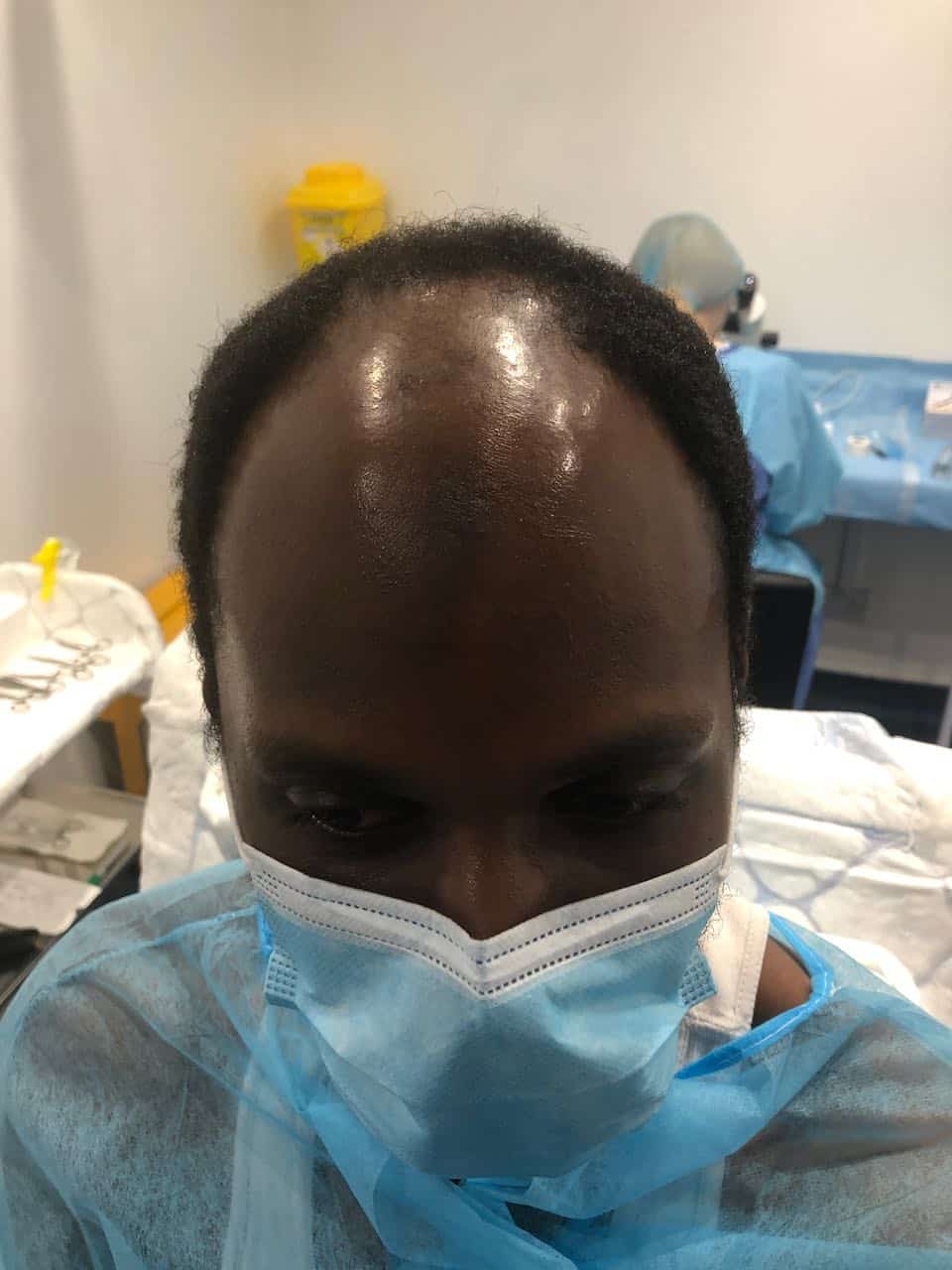
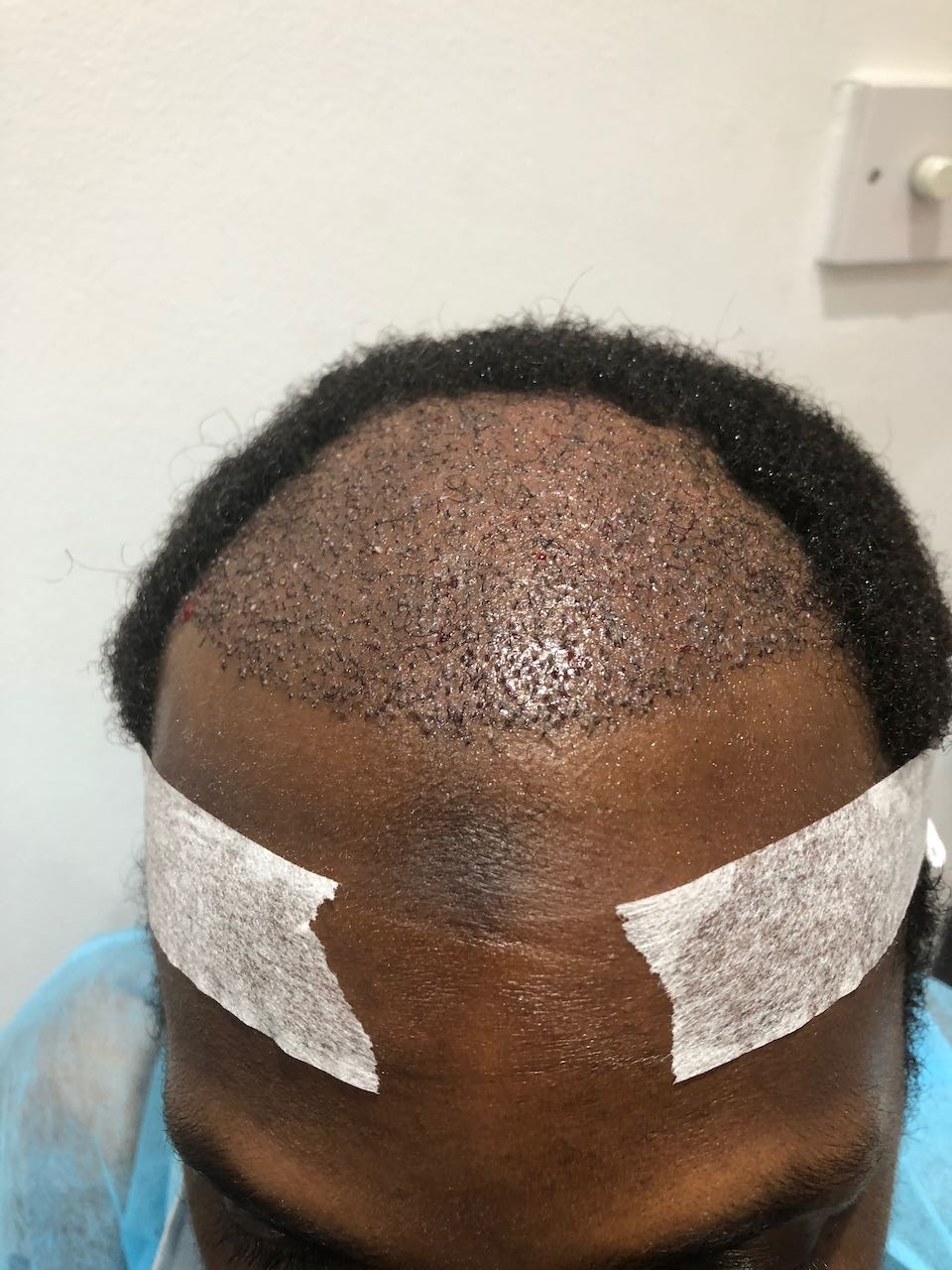
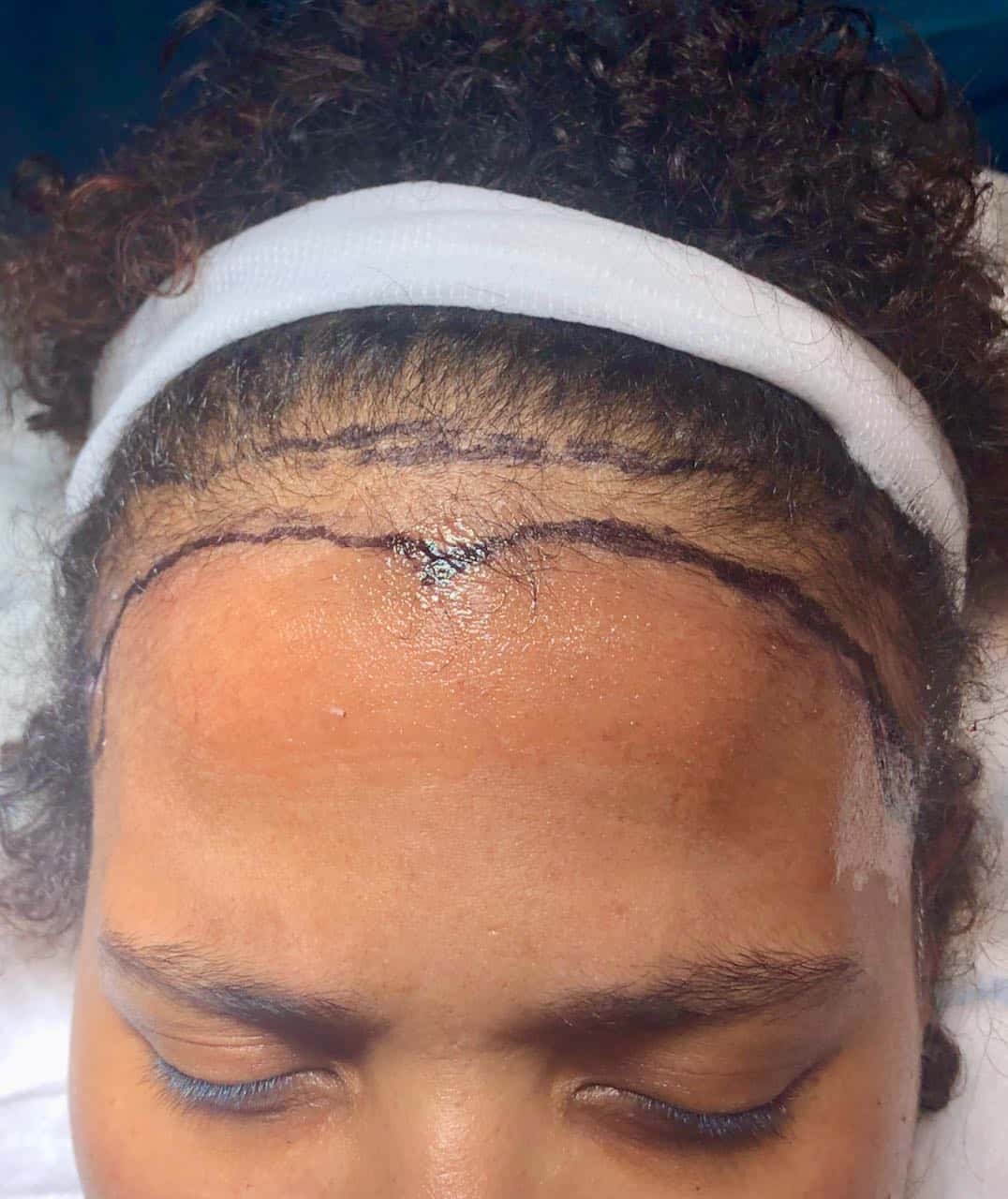
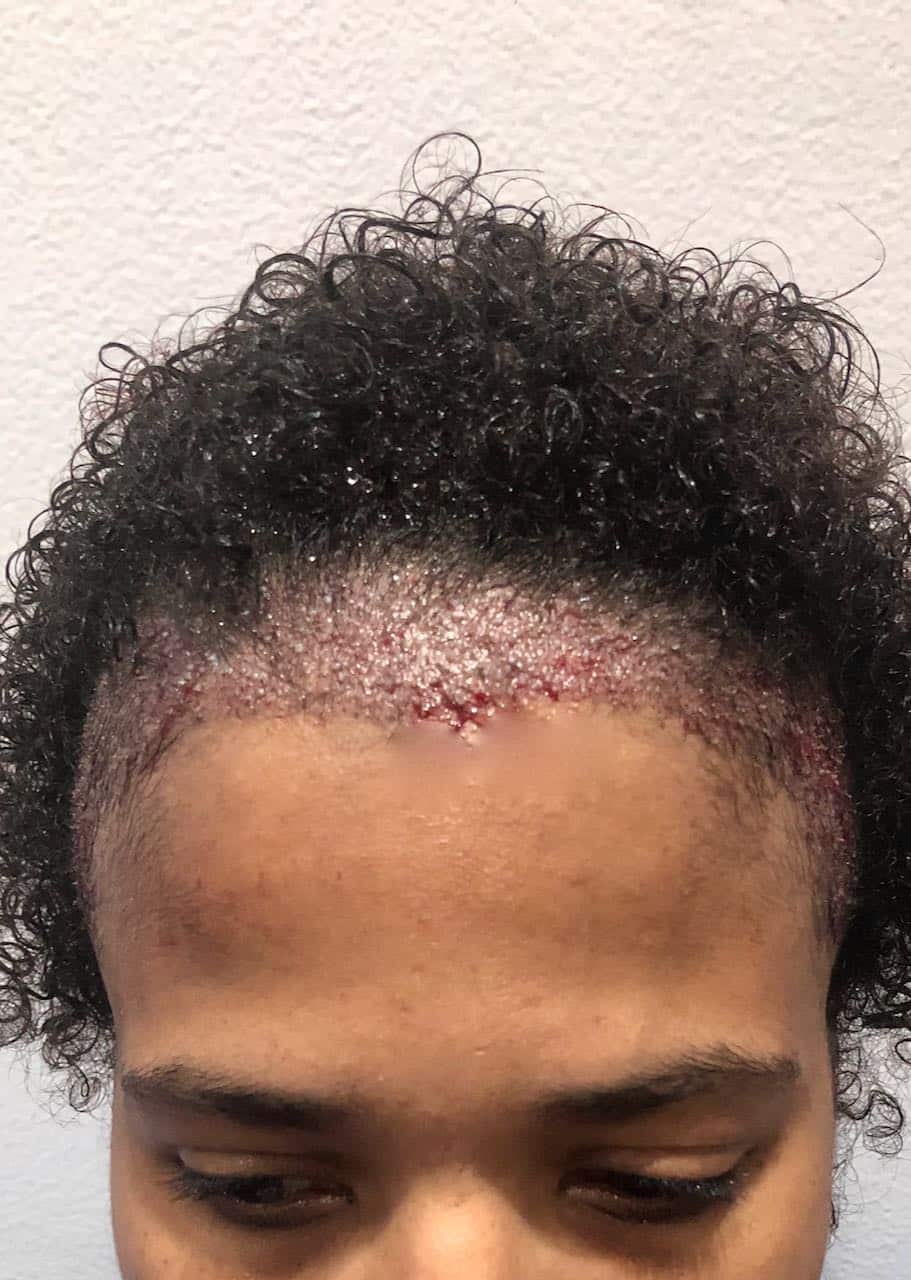
Afro Hair Transplant FUT or FUE?First of all, there are two options for afro hair transplants – FUE and FUT. Even though FUE is considered by some the most up to date method, not every case is suitable for the FUE procedure. So why am I saying this? Ok, think about the shape of your hair. Afro Hair is very curly above the skin. Furthermore it is just as likely to be as curly under the skin too. The FUE procedure uses a straight extraction device which enters the skin and dislodges the hair follicular unit. Therefore, afro hair has a higher chance of being damaged during the FUE procedure. However, this is not always the case. Both FUE and FUT can be administered on afro hair.
Most importantly, every patient is different and we won’t know the best option until we can see you in person. So, give us a call and we will arrange a free consultation. Or, we will arrange a face time chat at a time that suits you.
FUT & FUE considerations
So the FUT (follicular unit transplantation technique) may be the preferred option. Consider the following points:
- First of all, only a qualified surgeon may undertake the FUT procedure. Any qualified Doctor (GP for instance) may practice the FUE procedure.
- Secondly, some clinics would “take the chance” knowing that you would have signed to say you are aware that they grafts may not grow. Maybe you should ask how much experience they have in black hair transplants?
- Thirdly, if you have perhaps a small procedure requiring let’s say 600 grafts. How would you feel if they took 1500 grafts with only 600 that were not destroyed? Luckily most clinics would steer clear of attempting afro cases using the FUE procedure if there was any risk of mass trans section. In my view along with the surgeons that work at the Holborn Clinic FUE in afro, cases should only be attempted where there is little risk trans section. If we can be sure of this then the FUE procedure may be the best option for you.
Further considerations
- Fourthly, the FUE procedure requires us to shave the donor site completely to zero. This means the whole of the back of the head. Unfortunately, there is no way to avoid this.
- Fifth point to consider is that you will be left with a linear scar in the case of FUT. Albeit, the scar will be covered with the hair growing around it.
- Following on the recovery time tends to take longer. What I mean by this is the donor site wound will take perhaps 5 weeks to heal.
- Most noteworthy, the FUE leaves very little visible scaring and is less traumatic to the patient.
So, along with the above there are several other points that need to considered and discussed with every patient. So why not give us a call and we can run through the various forms of hair transplants in detail and discuss the best option for you.
PLEASE READ
So let’s take you through the FUT procedure from start to finish. I must warn you that I have included every part of the Afro Hair surgery and there may be some images containing blood and some videos of the skin being opened. My apologies if this in any way upsets you but I feel it is important to know what actually happens.
Finally, don’t forget this is a minor cosmetic procedure under local anaesthetic. You are fully awake but you will be positioned in a relaxed position and you won’t see any of the gory details. Almost forgot, the only discomfort you should feel is when we give the injections. That’s dealt with quickly. Other than that its pain free.
Let’s Get Started
So, you arrive at the clinic. Don’t forget, don’t drink alcohol for a week prior to the operation. So you would have been advised to make sure you have something for breakfast. If not we will go and get you something. Next, we go through a final medical check and run through the procedure again and answer any questions you may have. This will be with the doctor. Once this is complete we can get started. So this is a FUT procedure.
Prepare the Donor Site
First of all, we have to decide on the size of the donor strip. This is the piece of skin that will be removed from the back of the head. The surgeon will decide on an approximate amount of grafts required then examine the density. Once this is done the strip size can be accurately estimated.
Furthermore, once the area is shaved it needs to be washed. A Hair Transplant is what’s classed as a clean procedure and not sterile. What this means is you are not under sedation but under a local anaesthetic. A little like going to the dentist but you will be here for a good few hours. The clinic is cleaned to a high level and all instruments are sterile and single-use. Once the area is cleaned using a sterilising solution you are ready for the injections.
Local Anaesthetic
So, I’m sure you like most are perhaps worried about injections and if they are going to hurt? I’m not going to lie and say you won’t feel anything. Most patients just sit back and it doesn’t bother them. Some feel them more than others but I would add they are over quickly. Furthermore, once they are done you won’t feel anything for the rest of the procedure.
So, how many injections are required? This will depend on the size of the strip or donor site and recipient area. Each injection takes a matter of seconds.
Some patients are really worried about injections. The doctor may give you something to relax.
Taking the strip
First of all, the taking of the strip can and must only be conducted by a qualified surgeon. So a doctor (not a surgeon) may conduct an FUE (Follicular Hair Extraction) procedure but not an FUT (Follicular Hair Transplant). Also, you need a surgeon who has had a lot of experience in Afro Hair transplant to ensure the risks of scarring are reduced.
The video shows the surgeon Dr Sciacca opening the skin using a scalpel. At the Holborn Clinic all of our instruments are single-use and sterile. You will see that the patient is fully awake and feels no pain.
Taking the strip takes a matter of a few minutes. Stitching up afterwards takes longer. Throughout, you will feel no pain. Although you may hear what’s going on.
Stitching the Donor Site
Stitching the donor site needs care and precision. Firstly, the internal lining is joined after which the most superficial epidermal layer is closed ensuring a clean look and to minimalise the potential for keloid scars. This process takes time to ensure a finished look. Stitching needs an expert hand to ensure they will not come apart.
Most noteworthy, stitching should be completed by the surgeon.
There is no pain during this procedure. You may feel a little “tugging” in the skin. Once the stitching is complete the surgeon will move to the incisions.
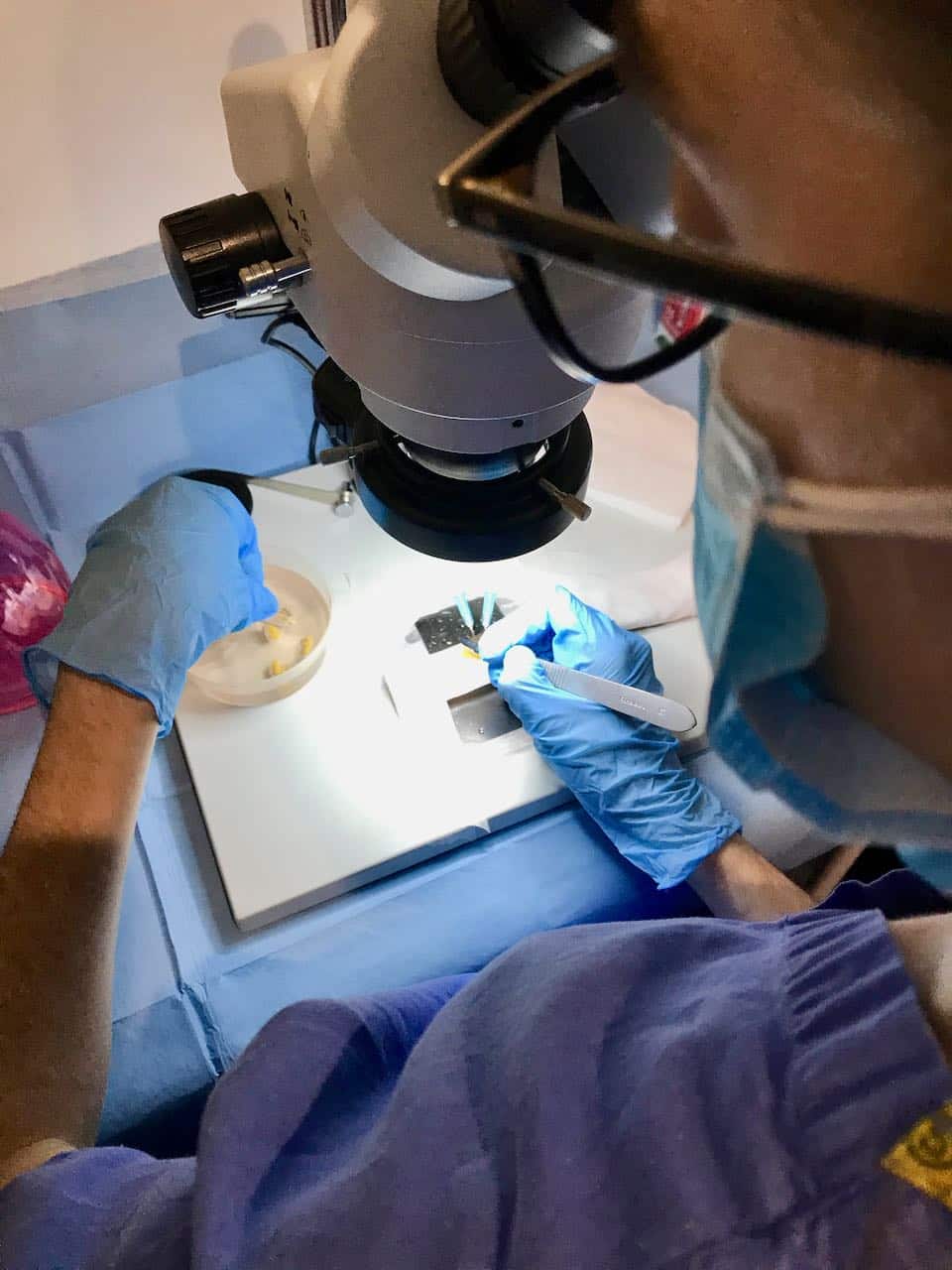
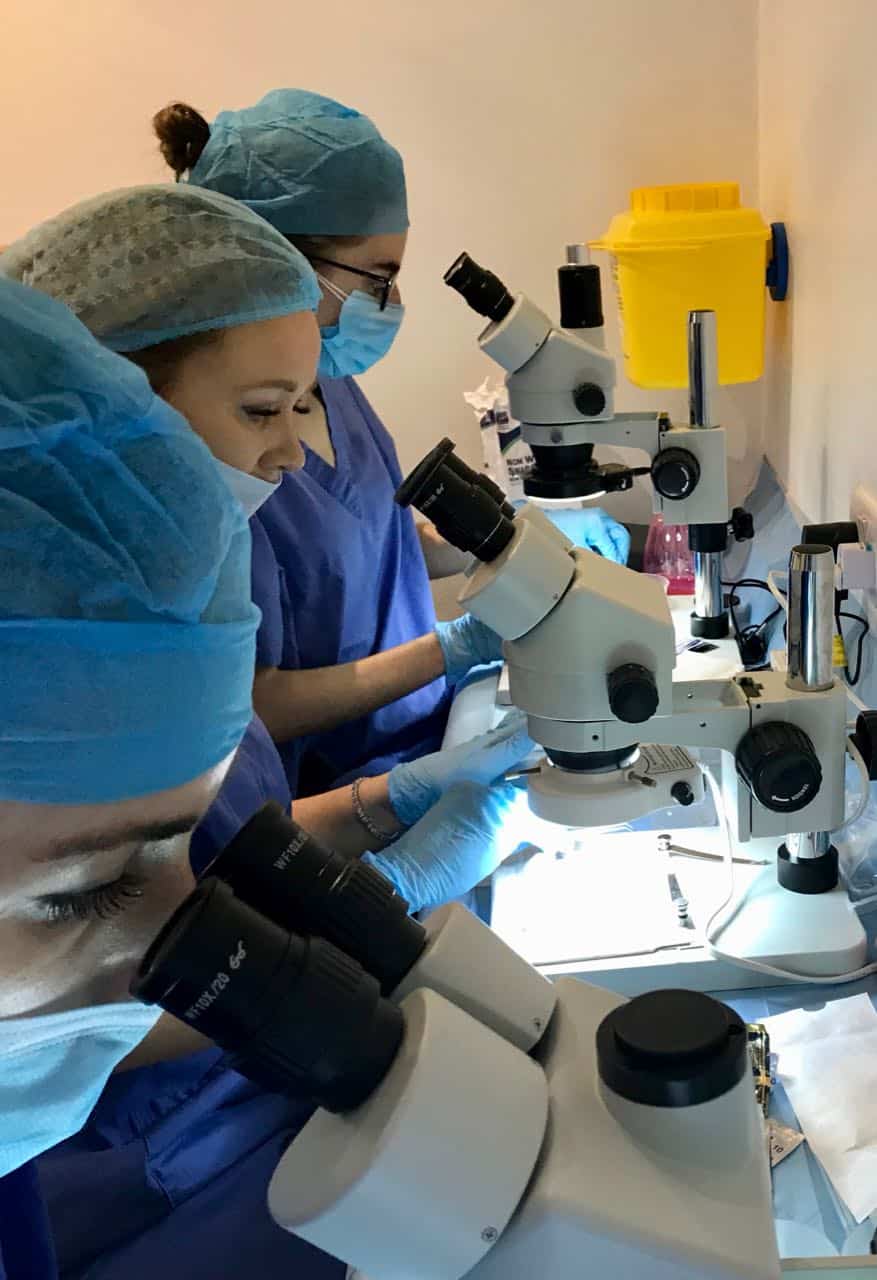

The above image is that of an afro scalp strip. You can see the hairs and how they lie within the skin. Most noteworthy how they enter the skin at angles. Also, you may zoom in on this image which will give you a better image.
Contact Us Now
What are you waiting for? Get in touch now and speak to a hair specialist who can help you! *FREE Afro Hair Transplant Consultation*
Placing the Incisions
First of all you will need a few more injections to numb the area.
Afro Hair Transplant incision is created like all skin types. Furthermore, they are created using a razor-sharp, precision blade. The sizes vary but as a rule, the incisions will be formed using 0.9-1.0mm blades.
The depth would be approx 0.6mm. Furthermore, it takes approx 1-2 hours to create the incisions depending on the amount required.
Finally, you will not feel any pain. However, you will probably hear the blade going in. It’s difficult to explain but due to the numbness, your sense of feeling is heightened.
Planting the Grafts
First of all, the grafts are cut from the strip taken above. Secondly, they are shaped to ensure a close and appropriate fit into the incisions. It is important to remember that we are transferring hair stem cells which are located around the base of the hair follicular unit. The shaping of grafts is determined under a microscope, by experienced hair technicians.
Once the hairs are shaped the technical team will start to implant them into the incisions created by the surgeon.
Forceps are used to carefully take the hair and place it deep inside the incision. You can imagine this takes time when we could be transferring over 2000 follicles. This is a tricky and time-consuming role. It takes a steady hand and a keen eye to ensure they are placed correctly.
All Finished
Ok, so we are now finished. Time to clean the area and bandage up the donor site. Also, make sure everything is looking good. So the final step is to sit you down and go through what we have done and what is required of you at home. Furthermore, we will give you some written material advising the same. Don’t worry though, I don’t expect you to remember everything. I will be in touch most days for the first week to ensure you are doing what you should.
After this I will be in contact over the following weeks and months to monitor your progress. In Afro Hair Transplants the final results may take up to 18 months.
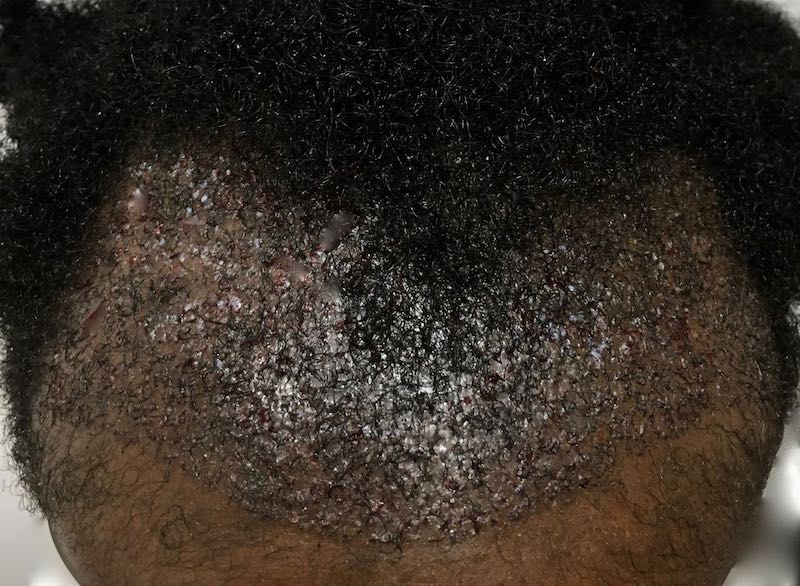
A 36 year old female who suffered from traction loss. The image to the left shows before. The image to the right was 12 months after the hair transplant. A total of 2200 grafts were used in this case.
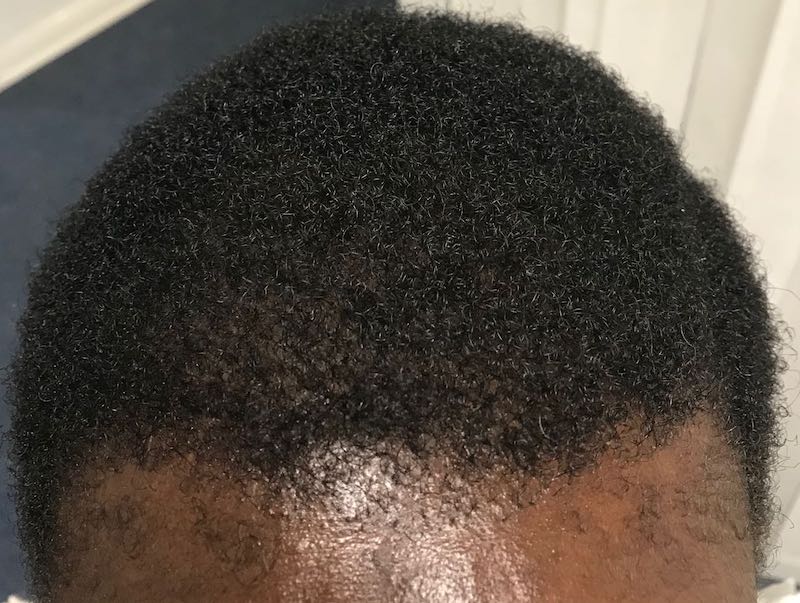
PriceWe will advise you of the cost for your individual Afro Hair transplant case at the consultation. Please note we don’t charge per graft. We charge for what is required to complete the job. The actual number can only be confirmed once the surgeon has created the incisions. This prevents any additional charges on the day which does happen when paying per graft. Prices range from £2500-£5500 depending on the size of the transplant.
Registered with the Trichological Society
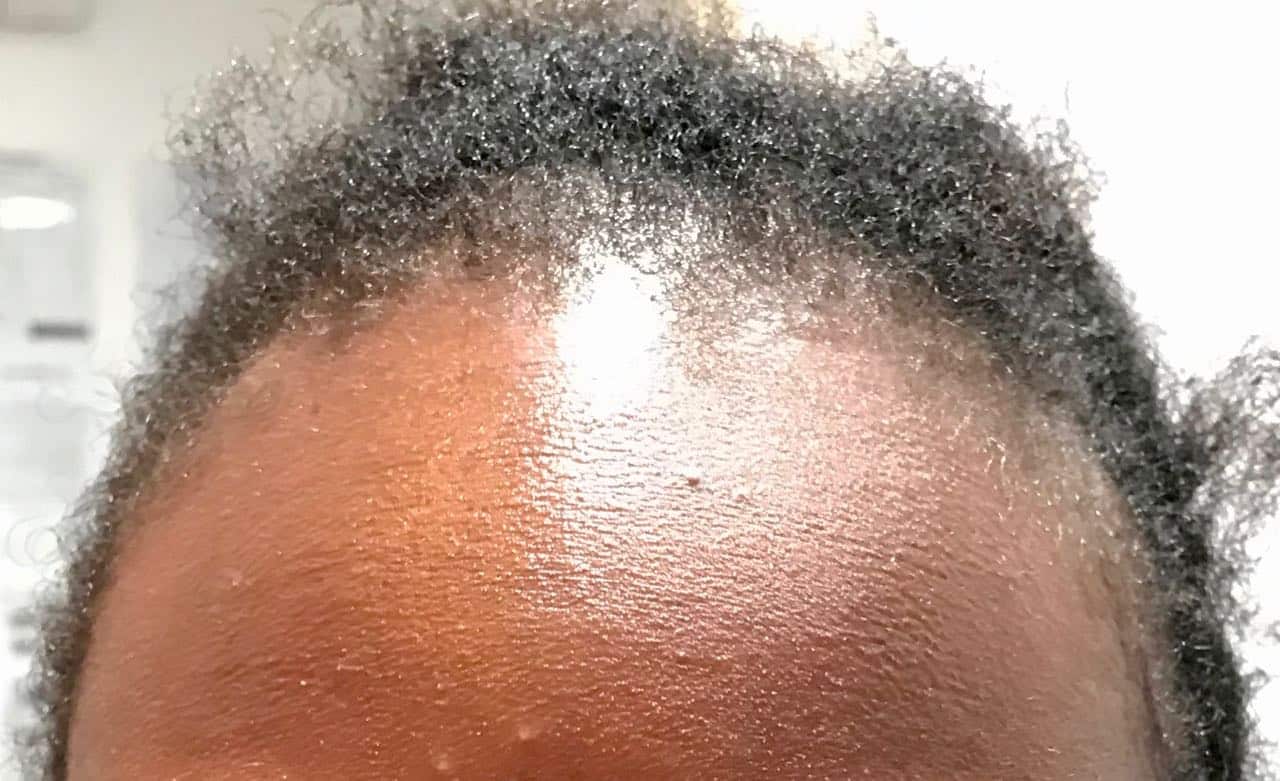
An Afro Female case. Traction Alopecia causing permanent hair loss. We have rebuilt the hair line. This image was taken straight after the Afro Hair transplant.
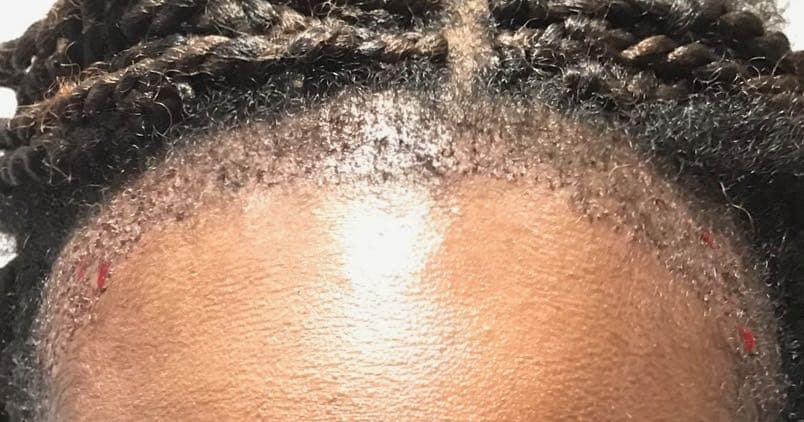
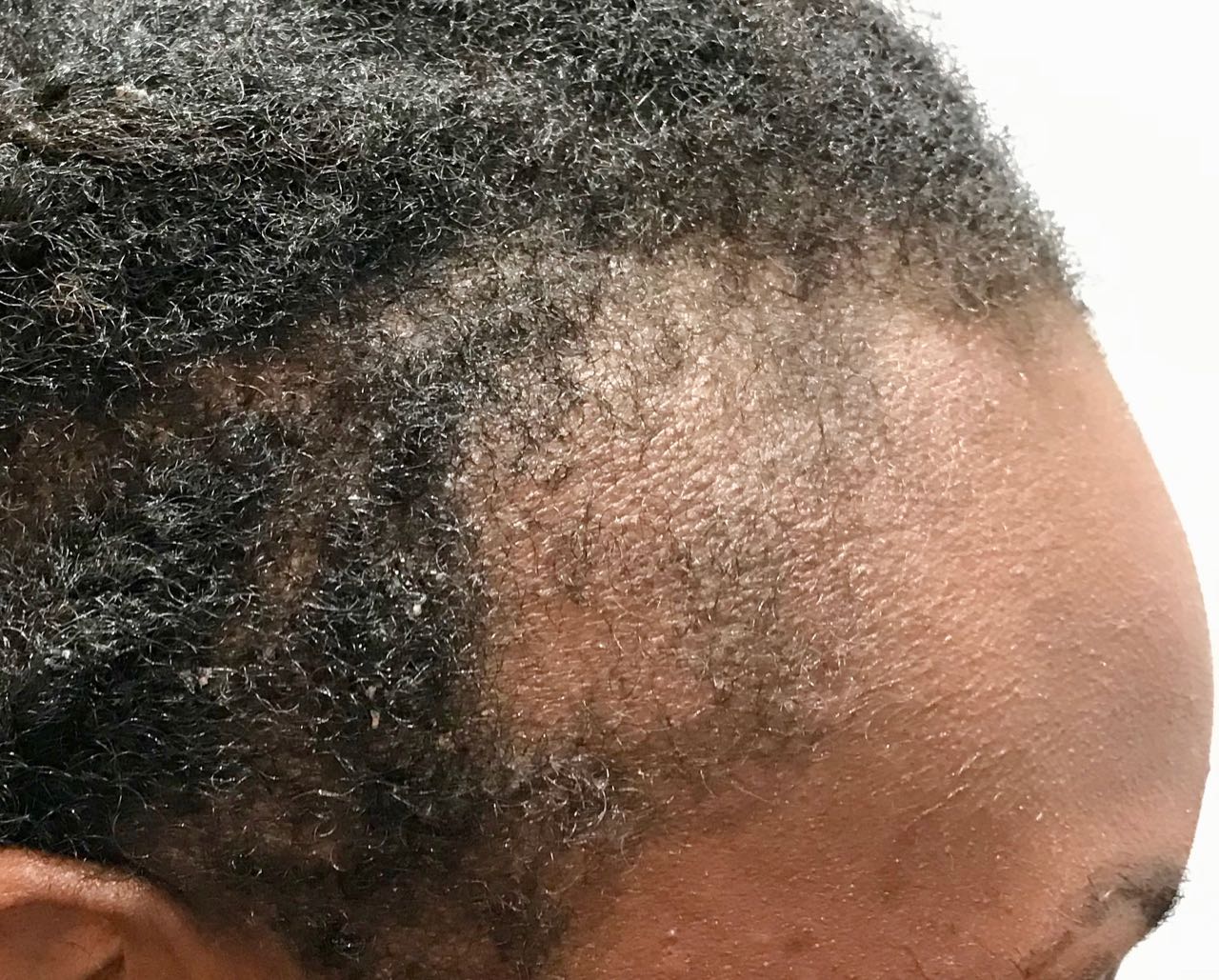
You can see in this image that the temporal regions have been covered with a thick density of donor hair. Again this image was taken straight after the procedure. It goes without saying that avoiding strain on the hair in future will prevent this from happening again.
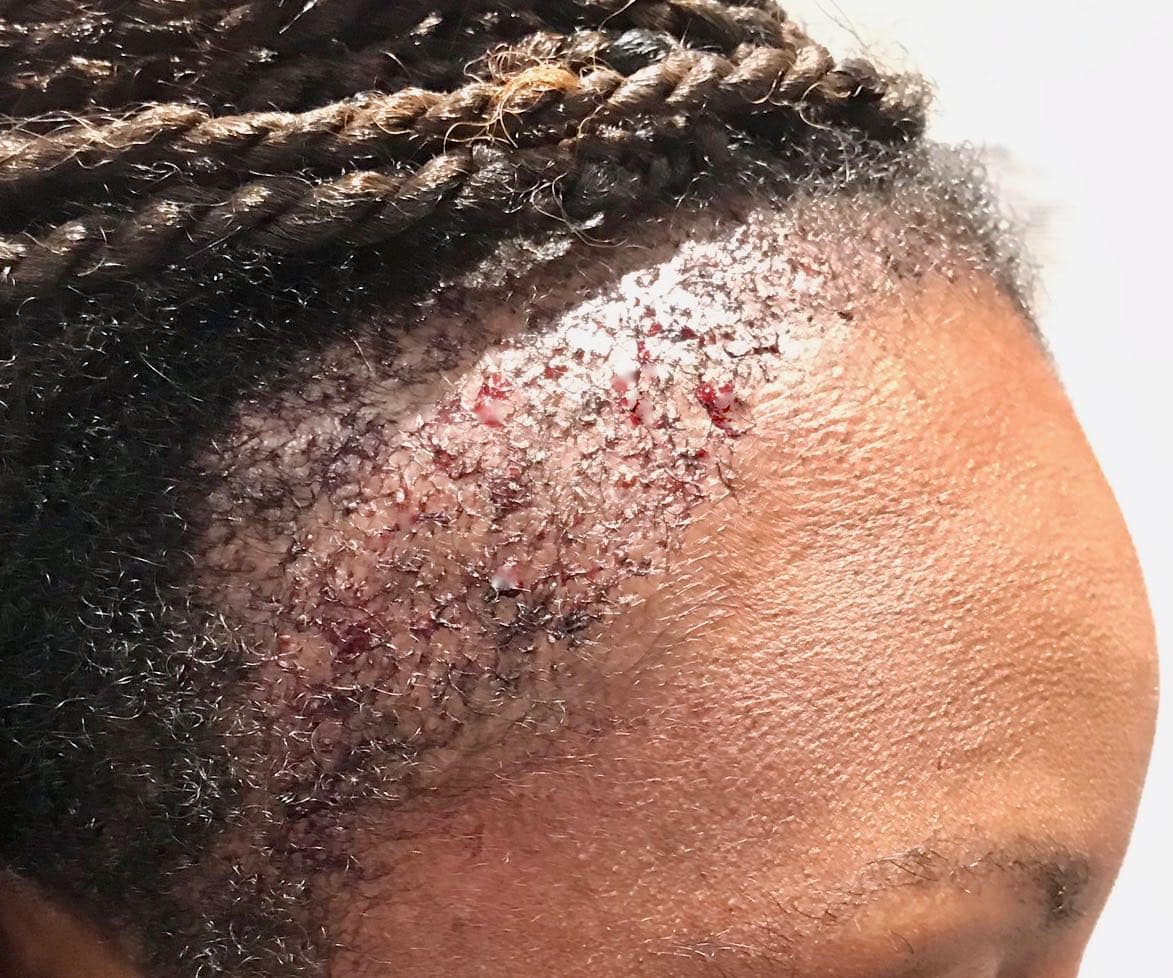
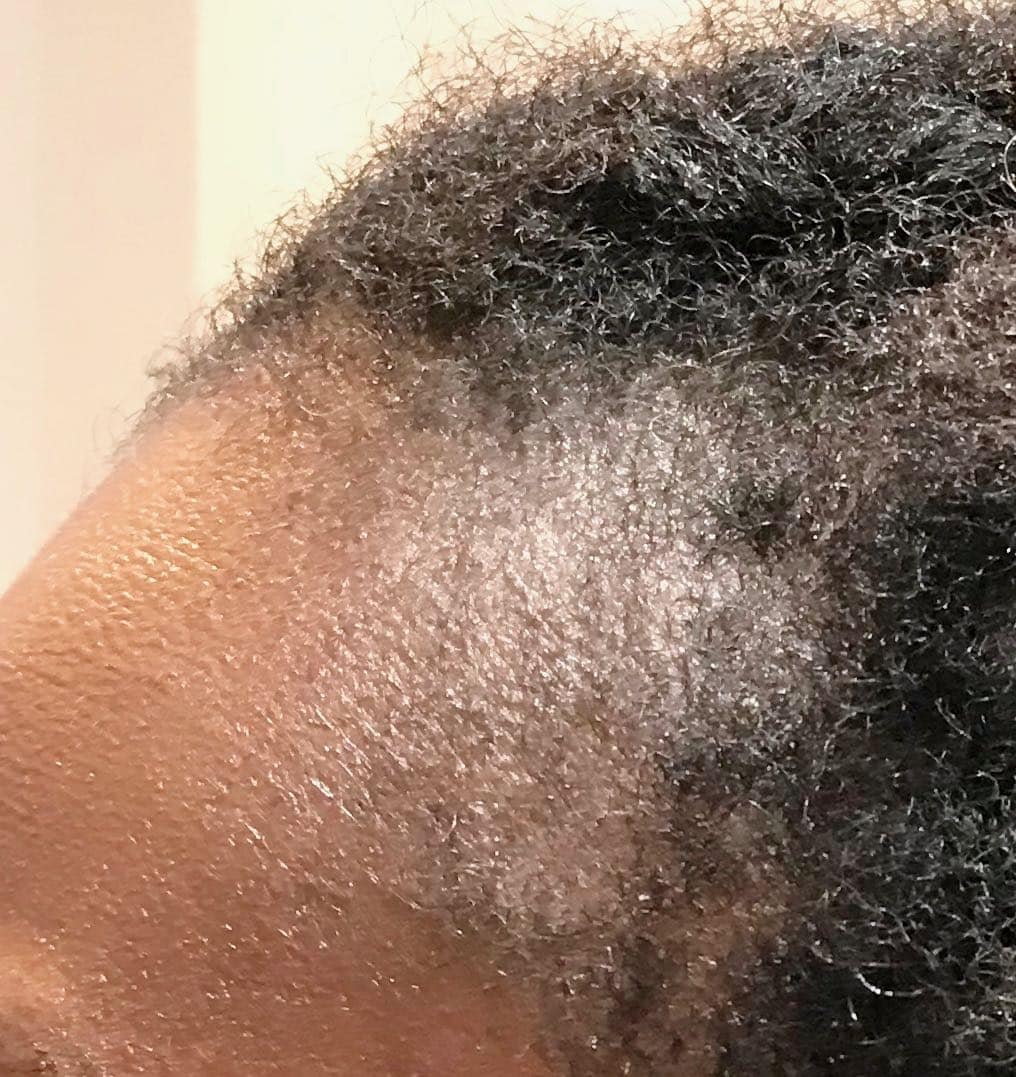
You will notice the hair line is not straight. All patients have different requirements when designing a hair line. The shape of the face is a major factor when deciding on the most natural look.
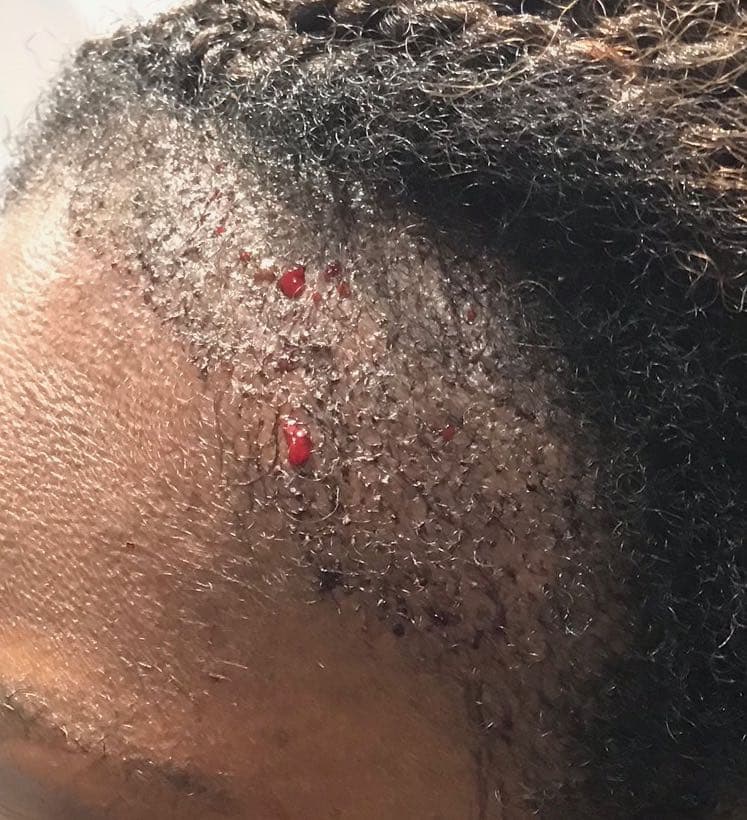
Considerations when thinking of a Afro Hair Transplant
Type of hair loss?
Type of hair shedding is a main concern. Hair loss in women when discussing a permanent state of loss differs from that of a male pattern in most cases. Of course there are many temporary hair loss conditions that affect women. In such cases the hair loss will grow back. Treatment of course may be required but in this instance Afro hair surgery would not be suitable.
Traction Alopecia?
Quite possibly the most obvious case for surgery. A simple and permanent solution for the lost hair caused by traction alopecia. Contrary to belief, traction loss cannot be regenerated. If there are no hair follicles then hair cannot grow. Therefore the only way to have that perfect hair line that you have lost is to have it transplanted. You can choose the hair line you want as well.
Afro Hair Surgery FUE or FUT?
Most Afro men will have very short hair. hence this would exclude FUT (follicular unit transplantation) transplant’s as there will be a visible scar which will show in very short hair styles. FUE (follicular unit extraction) is the only real method to avoid obvious scarring.
We find most women prefer the FUT procedure.
Medical Status?
Patients may have medical conditions such as high blood Pressure, HIV, Hep B, Alopecia Areata and a list of other conditions that may prevent a patient being suitable for an Afro Hair Transplant.
Sufficient Donor Site?
There must be sufficient donor hair. There should be sufficient hair grafts to be able to take what is needed and leave a good amount of hair to leave the donor site looking totally natural.
Risk of Scarring?
Underlying skin conditions may be an issue when considering Afro hair surgery. Scarring may result. Consideration is taken when considering the risk of scarring Keloids.
Risk of future Hair Loss?
Female or male pattern baldness is likely to cause further loss and must be taken into consideration. There are medications that can slow down and in some cases stop future hair loss.
